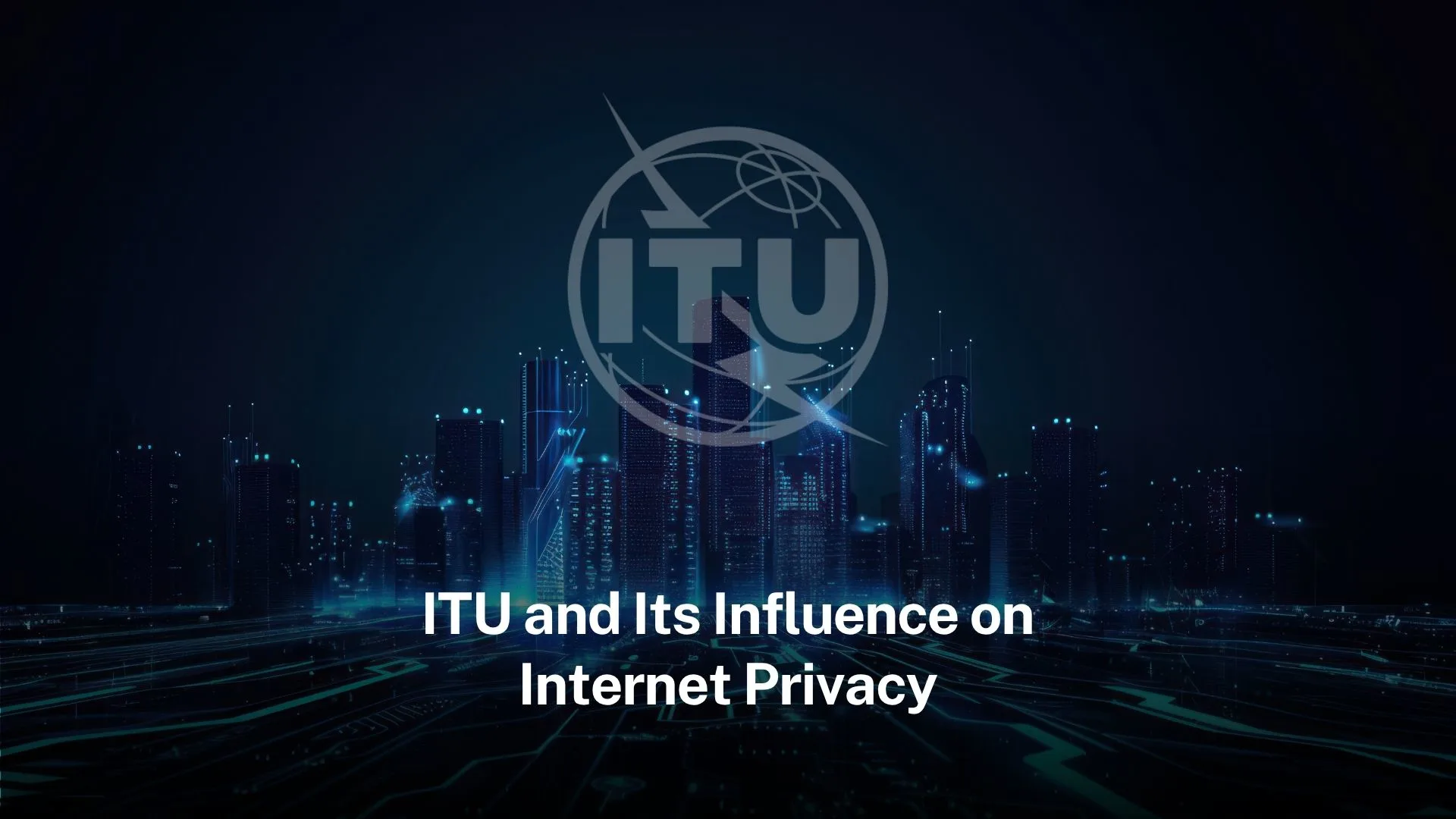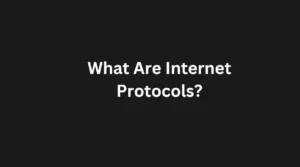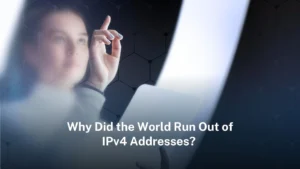Introduction to ITU and Its Global Role
The International Telecommunication Union, or ITU, is one of the oldest groups that helps countries work together in communication. It began in the nineteenth century when people were still sending messages by telegraph. At that time, there were few rules about how one country’s line could link to another. Governments met and decided to create a shared system. Over the decades, that system grew with every new invention—from telegraph and radio to television and the modern internet.
Table of Contents
ToggleToday, ITU is part of the United Nations. It brings together governments, companies, and experts who design and run networks. The organisation writes technical rules that make sure signals can travel smoothly from one place to another. It also sets limits to avoid interference between radio, satellite, and mobile systems. Because every country depends on communication, the ITU’s decisions affect almost every person online.
As digital life expanded, the ITU took on new concerns. It began to look beyond wires and frequencies. It started to discuss how technology should protect people and how data should stay safe. What began as an engineering body slowly turned into a space where privacy and human rights meet technology. This change did not happen overnight, but now privacy is part of the ITU’s work almost everywhere.
Why Internet Privacy Became a Global Concern
When the internet was young, it was small and open. Researchers shared data freely, and security was simple. As users multiplied, every action began to leave a digital record. Advertisers learned to follow clicks. Governments saw how much information could help them plan or control. Step by step, privacy stopped being a private matter and became a social question.
In another, weak laws may allow it to leak. Since networks ignore borders, no single nation can solve the problem alone. That is why international organisations like ITU became part of the conversation.
For years, countries tried to fix privacy through local laws. Some built strict systems. Others stayed silent. The result was confusion. Users never knew who owned their data or which rules applied. ITU saw the gap and started to host meetings where nations could talk about common standards. Those meetings slowly created a shared language for privacy across borders.
ITU and the Balance Between Security and Freedom
Weak oversight may protect freedom but open doors to abuse. ITU often sits in the middle of this debate. It reminds members that technology must protect people, not control them.
During its sessions, ITU officials repeat one phrase: “privacy by design.” It means protection should be built into technology from the start. Encryption, minimal data collection, and transparency are part of that design. When a network follows these ideas, it becomes safer by nature.
Still, ITU faces criticism. Some say its structure favours governments and leaves little space for ordinary users. Others fear that states could use ITU platforms to justify more monitoring. ITU answers that its role is to keep communication open and secure, not to police content. This argument continues each year, showing how hard it is to separate security from personal freedom.
ITU’s Work on Data Protection
Inside ITU itself, personal data is handled under strict rules. The organisation follows the UN privacy framework. Staff can access information only when they need it. Files are encrypted, and storage systems have limits on retention. These internal steps show that ITU takes privacy seriously, not only in words but in daily operation.
At a global level, ITU issues recommendations that help countries design their own data protection systems. These include guidelines on how to collect consent, manage cross-border data flows, and secure databases. Telecom operators and service providers often follow these models to avoid conflicts between jurisdictions.
Because ITU is neutral, its standards are accepted by regions that rarely cooperate. This makes it easier for international data exchange to remain lawful and transparent. In effect, ITU acts as a translator between different privacy cultures.
ITU’s Support for Developing Nations
Many countries still lack clear privacy laws or modern infrastructure. ITU helps them build capacity through its Development Sector. It sends experts to advise on legislation and network security. It also trains engineers on encryption, data management, and safe digital practices.
In Africa, Asia, and Latin America, ITU programmes help small providers join the global internet safely. By applying simple privacy steps—like limited data collection and secure routing—they protect users even where budgets are small. This guidance reduces inequality between rich and poor nations.
Governments in these regions often rely on ITU templates to draft their first privacy acts. Over time, these rules evolve, but the base model usually remains close to ITU’s recommendations. In this way, ITU builds silent bridges that connect new digital economies with global privacy norms.
ITU and Emerging Technologies
Every new technology brings new privacy risks. Artificial intelligence can predict habits. Smart devices listen and record. 5G networks move information faster but track it more closely. ITU studies these changes through technical groups that include academics, regulators, and industry experts.
For the Internet of Things, ITU has published reports urging companies to clarify who owns the data produced by sensors. For artificial intelligence, it promotes fairness and accountability. These ideas prevent systems from becoming tools of discrimination or control.
In 5G policy, ITU developed standards that protect user identity on the network layer. They guide operators on how to separate subscriber details from traffic data. This limits what outsiders can see and reduces spying risks.
By working on these new fields early, ITU tries to prevent the mistakes that happened when the internet grew too fast without privacy rules.
ITU’s Cooperation with Other Organisations
Privacy is a shared field. Through joint projects, ITU brings its engineering knowledge, while partners contribute legal or social insight. For example, when ISO creates a standard on information security, ITU ensures it matches telecom practices. When UNESCO discusses digital ethics, ITU adds technical context.
This cooperation makes privacy governance more consistent. It also helps businesses that operate worldwide. It shares alerts and assists in damage control. This real-time cooperation proves that privacy and security need global teamwork, not isolation.
ITU and Public Awareness
Privacy is not only about policy. It is also about people’s behaviour. ITU publishes simple guides that explain how users can protect themselves online. It supports awareness events and works with schools to include digital safety in education.
Young users learn to keep passwords private and to question requests for personal information. Adults learn to recognise phishing, scams, and unsafe websites. ITU believes informed users are the first line of defence for privacy.
It also runs online campaigns during global safety days, reminding citizens that privacy loss can happen quietly. These projects build a culture of caution that laws alone cannot create.
ITU and Debate over Control
Not everyone welcomes ITU’s growing role in internet matters. Some groups argue that its government-based model could reduce openness. They fear that stronger ITU authority might let some states tighten control over online information.
A few proposals, such as the so-called “New IP,” sparked controversy. Supporters said it could improve security and network quality. Critics warned it might enable censorship or deep surveillance. The debate revealed deep tension between innovation and freedom.
ITU responded by saying that any technical change must respect human rights. It also invited civil society to take part in discussions. These moves aimed to show transparency and balance, though mistrust still exists among certain communities.
ITU’s Impact on Business Practice
Telecommunication companies use ITU standards daily. When they design routers, encrypt traffic, or store customer logs, they often rely on ITU models. This helps them work across countries without breaking local laws.
Large cloud providers and mobile operators refer to ITU documents on data protection and network security. Smaller firms use simplified versions to meet customer expectations. Because of this alignment, privacy becomes part of the supply chain rather than a later addition.
However, following ITU guidelines can be expensive. Some small operators find the cost of encryption and auditing high. To help them, ITU offers free training and open-source tools. This ensures that privacy is not only for rich markets but for everyone.
When businesses adopt ITU rules, trust grows. Users feel safer using services that meet international standards. In time, that trust supports economic growth.
ITU and Cross-Border Data Flow
When information crosses borders, the laws around it often change. One country may allow storage of personal data abroad, while another may forbid it. ITU helps bridge these differences by encouraging members to use shared standards for transfer and storage. This keeps international traffic moving without breaking national rules.
ITU’s discussions on data flow focus on transparency and control. Countries are asked to tell users where their data travels and how it is protected. This approach makes international communication smoother. It also reduces misunderstandings between regulators and companies that operate in many regions.
ITU and Digital Trust
Every online service depends on trust. Users must believe that their data is handled safely and that systems will not fail them. ITU’s work on digital trust joins privacy, security, and reliability into one goal. It pushes for clear identity management and strong authentication so that users know who they are dealing with.
Telecom operators use ITU standards to verify network identities, detect fraud, and stop fake traffic. This technical layer makes the internet more predictable. When systems behave reliably, users gain confidence, and the online economy grows faster.
ITU’s Future in Global Privacy
The ITU’s influence on privacy will likely expand. Technology changes fast, and so does the meaning of protection. ITU will continue to connect governments, companies, and communities so they can share ideas. It will keep updating standards to fit new realities.These alliances will help ensure that privacy stays part of every digital system.
People everywhere now expect to control their own data. As that demand grows, ITU will remain one of the few global spaces where technical design and ethical principles meet. Whether through small standards or big conferences, its work quietly shapes how the world keeps information private.
FAQs
1. Why does ITU care about internet privacy?
Because every message and connection crosses borders, privacy needs global rules. ITU helps nations agree on how to protect personal data while keeping networks open. Its work aims to make the internet safe without limiting access.
2. Can ITU force countries to follow its standards?
No. It can only suggest and guide. Countries join ITU voluntarily and often adapt its advice into local law. This cooperative model keeps the internet consistent and avoids technical chaos.
3. What impact do ITU’s standards have on industry?
When ITU releases a new rule about security or data handling, network operators listen. They know following it will make cross-border business easier. These standards also improve customer confidence in the systems they use.
4. What does “privacy by design” mean?
It means safety should be built in from the start. Systems should not collect more data than needed. They must use encryption and allow users to control what happens to their information.
5. How does ITU keep the balance between privacy and security?
ITU reminds governments that safety should protect people, not watch them. It supports encryption and transparency, not mass surveillance. This balance is discussed at every ITU meeting.




I think you have remarked some very interesting points, thanks for the post.